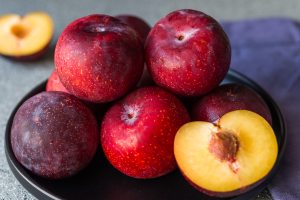

Popularly known as the sunshine vitamin, vitamin D is produced when sunlight and our skin get in contact. But because we don’t receive enough sunlight in the winter months, it’s important to add vitamin D supplements to your routine. But a lot of people get confused about the best time to take vitamin D to reap the best benefits of this nutrient. We’ve covered all that you need to know about this vitamin here.
What is Vitamin D?
A fat-soluble vitamin, Vitamin D is most amazing when taken with healthy fats because they help in absorbing and retaining this vitamin. There are two types of Vitamin D that are consumed as part of our diet:
- Vitamin D3 which is found in animal-based foods like egg yolks and fatty fish.
- Vitamin D2 which is most common in plant-based foods like yeast, mushrooms, and more.
The best vitamin D of the two when consumed as part of your diet is Vitamin D3 as it helps increase the Vitamin D level in your blood more effectively. It is also important to note that your body needs very small amounts of Vitamin D daily as it can be stored in the body for a long period of time. Ideally, children need 400 IUper day and adults need 600 IU of vitamin D every day. This can be increased to 800 IU in case of individuals who are over 70 years of age.
Sunlight is the best vitamin D source. The Ultraviolet B rays from the sun convert cholesterol into Vitamin D. Sunbathing while exposing a larger surface area of your skin for a few minutes each day is considered the most effective way of getting this vitamin. If you are using sunscreen regularly, it is a good idea to get direct sunlight for at least 10 minutes each day before applying it.
That being said, there may be several reasons like skin sensitivity, the nature of your occupation, or your geographical location that determine the amount of sunlight that you get. In that case, including foods that are rich in Vitamin D in your diet can prevent deficiencies. The best sources of Vitamin D are fatty fish like sardines, tuna, mackerel, and salmon. You need to consume them almost every day to fulfil your daily required intake.
You may also choose cereal or dairy products that are fortified with Vitamin D in case you cannot include these foods in your diet. Mushrooms are known to have traces of Vitamin D but are not effective in fulfilling your daily required intake.
In order to prevent vitamin D deficiency, it is also a good idea to consume supplements that contain perfectly calculated doses to fulfil your requirements.
Health Benefits of Vitamin D
When you understand the best time to take Vitamin D, you will be able to get all the benefits of this nutrient which include:
1. Stronger Bones
Including the best sources of Vitamin D in your diet is important to maintain strong and healthy bones. Vitamin D is necessary for calcium to be absorbed in the gut which in turn leads to the mineralisation of the bones. In simpler terms, even if your diet has a very high calcium content, it is of no use unless you have a good intake of Vitamin D. One of the best vitamin D benefits is that it prevents the bones from becoming brittle as you age. A healthy consumption of Vitamin D and Calcium is the best way to prevent osteoporosis which is the result of the density and quality of the bones reducing over time.
2. Muscle Strength
Besides building strong bones, knowing when to take Vitamin D can also improve muscle strength as per a study published in the Journal of the Academy of Orthopaedic Surgeons. One sign that is most common when it comes to vitamin D deficiency is bad muscle strength that can increase the falling risks. This is why a lot of elderly people are asked to increase their vitamin D intake. This vitamin is also known for aiding in the improvement of your posture as well as strength of the muscles, which is specifically beneficial for those who are active and/ or are involved in athletic activities.
3. Support for Immune Health
During the pandemic of COVID-19, vitamin D was in discussion as it was predicted that it may help prevent infections, specifically viral infections. As per a study that was published in the Journal of Osteopathic Medicine, the risk of inadequate Vitamin D levels is more common in high altitude locations and during the cold months. This is why the people who live in such locations are more susceptible to viral infections like influenza or respiratory diseases. This trend was also observed during the COVID-19 pandemic and this is why it was suggested that such supplementations were required in order to eliminate any type of deficiencies.
4. Better Oral Health
The role of vitamin D in oral health has been discussed a lot. It is important to help strengthen your teeth as it is an essential vitamin for calcium absorption. If you’re following the best time to take vitamin D, you may be able to prevent common oral health issues like gum diseases, cavities, tooth decay, etc.
5. Prevention of Diabetes
There’s no concrete evidence per se proving that vitamin D can prevent Type 1 and Type 2 diabetes. However, some studies do talk about its benefits for those dealing with this disease. As per a study published in the European Journal of Endocrinology in 2019, taking vitamin D supplements for 6 months can prominently increase insulin sensitivity, especially in people who are more prone to developing this condition. Taking vitamin D may even help slow down Diabetes progression.
6. May Treat Hypertension
People who show signs of high blood pressure or hypertension should add the best sources of vitamin D in their diet. Hypertension is considered to be a sign of issues related to the heart and this is why increasing the consumption of vitamin D for even short term is commonly suggested by medical experts. There are studies that show a link between low vitamin D levels in the body and high blood pressure. This is why currently supplementation therapy is being researched as a potent treatment for hypertension.
7. Helps with Weight Loss
As per the experts, obesity is one of the common symptoms in those who are dealing with vitamin D deficiency. Therefore, there can be a possibility that if you increase your vitamin D intake, it may help you in your weight loss journey. As per a Nutrition Journal study, the combination of vitamin D and calcium can prove to be more advantageous in weight loss as compared to a calorie-deficit diet.
Best Time to Take Vitamin D
Learning when and how to take Vitamin D is important to enjoy maximum benefits. Since Vitamin D is fat-soluble, it is best to consume it with a meal that is rich in healthy fats. Adding foods like olive oil, coconut oil, nuts, and chia seeds to your diet along with the best sources of Vitamin D gives you the results that you expect. When you consume Vitamin D with your largest meals of the day, which is most likely your breakfast or lunch, the absorption increases by 50%.
The name of the vitamin — ‘Sunshine Vitamin’ itself suggests the best time to consume it — first thing in the morning with your breakfast. Experts suggest that taking the vitamin too close to your bedtime may affect your sleep pattern. This is because the level of melatonin or sleep hormones and Vitamin D are correlated. Taking this vitamin close to your bedtime can affect the production of melatonin in your body, thereby preventing you from getting sound and relaxed sleep.
In addition to that, mornings are the best time to consume Vitamin D supplements and foods rich in this nutrient as you are more likely to remember. It is also more convenient as we tend to eat out more in the evening and may also have late work schedules.
Worst Time to Take Vitamin D
As mentioned before, the worst time to take Vitamin D is right before bedtime. Let us understand in more detail why this is the case.
First, consuming Vitamin D supplements at night can affect your melatonin production. This has a major effect on the pineal gland which is responsible for maintaining your body clock. As a result, you may experience symptoms similar to jet lag or insomnia when you take Vitamin D supplements at night.
Conclusion
Now that you know the worst and best time to take Vitamin D, it is recommended that you experiment and find out what works best for you. However, before you start to use any supplements, you should consider taking your doctor’s advice. They will be able to recommend the best options based on several factors like any medication that you are consuming, allergies, health issues, and wellness goals.




